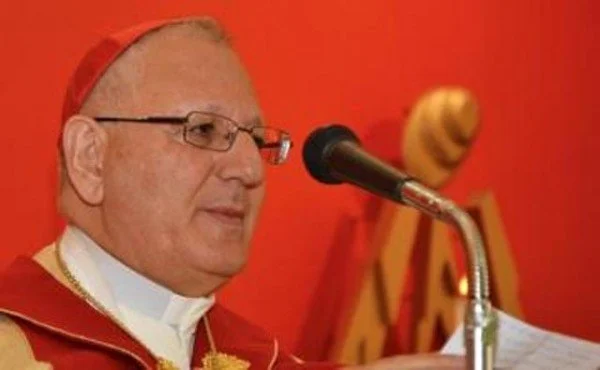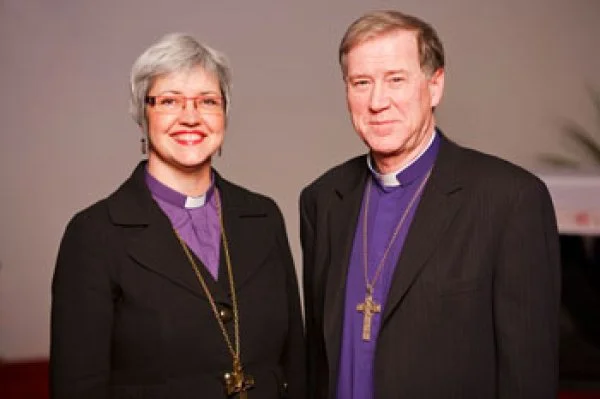- Français
- |
- Booklist
- |
- Week of Prayer
- |
- Links
- Areopagus - a forum for dialogue
- Academic journals
- Acronyms
- Bible tools
- Bibliographies
- Booksellers and publishers
- Churches
- Canadian church headquarters
- Directory of Saskatchewan churches
- Retreat centres
- Saskatchewan church and non-profit agencies
- Ecumenism.net Denominational links
- Anabaptist & Mennonite
- Anglican
- Baptist
- Evangelical
- Independent episcopal
- Lutheran
- Methodist, Wesleyan, and Holiness
- Miscellaneous
- Mormon
- Orthodox (Eastern & Oriental)
- Para-church ministries
- Pentecostal / charismatic
- Presbyterian & Reformed
- Quaker (Society of Friends)
- Roman & Eastern Catholic
- United and uniting
- Documents of Ecumenical Interest
- Ecumenical agencies
- Ecumenical Booklist
- Ecumenical Dialogues
- Glossary
- Human rights
- Inter-religious links
- Justice & peace
- Lectionaries
- Religious news services
- Resource pages
- Search Ecumenism.Net
- |
- Documents
- Ancient & Medieval texts
- Ecumenical Dialogues
- Interreligious
- Anabaptist & Mennonite
- Anglican
- Evangelical
- Lutheran
- Orthodox
- Reformed & Presbyterian
- Roman & Eastern Catholic
- United & Uniting
- Miscellaneous churches
- Canadian Council of Churches (CCC)
- Conference of European Churches (CEC)
- Interchurch Families International Network (IFIN)
- National Council of Churches in Australia (NCCA)
- Lausanne Committee for World Evangelism (LCWE)
- World Council of Churches (WCC)
- Other ecumenical documents
Church traditions
Documents from ecumenical agencies
- |
- Dialogues
- Adventist-Reformed
- African Instituted Churches-Reformed
- Anglican-Lutheran
- Anglican-Orthodox
- Anglican-Reformed
- Anglican-Roman Catholic
- Anglican-United/Uniting
- Baptist-Reformed
- Disciples of Christ-Reformed
- Disciples of Christ-Roman Catholic
- Evangelical-Roman Catholic
- Lutheran-Mennonite
- Lutheran-Mennonite-Roman Catholic
- Lutheran-Reformed
- Lutheran-Roman Catholic
- Mennonite-Reformed
- Mennonite-Roman Catholic
- Methodist-Reformed
- Methodist-Roman Catholic
- Oriental Orthodox-Reformed
- Orthodox-Reformed
- Orthodox-Roman Catholic
- Pentecostal-Reformed
- Prague Consultations
- REC-WARC Consultations
- Roman Catholic-Lutheran-Reformed
- Roman Catholic-Reformed
- Roman Catholic-United Church of Canada
- |
- Quick links
- Canadian Centre for Ecumenism
- Canadian Council of Churches
- Ecumenical Shared Ministries
- Ecumenism in Canada
- Interchurch Families International Network
- International Anglican-Roman Catholic Commission for Unity and Mission
- Kairos: Canadian Ecumenical Justice Initiatives
- North American Academy of Ecumenists
- Prairie Centre for Ecumenism
- Réseau œcuménique justice et paix
- Week of Prayer for Christian Unity
- Women's Interchurch Council of Canada
- World Council of Churches
- |
- Archives
- |
- About us
Archive for tag: church union
Archive pour tag : church union
The most interesting, and potentially most dramatic, ecumenical news this week was the proposal of Patriarch Raphael I (Louis Sako) of Bablyon, head of the Chaldean Catholic Church, who proposed a plan for a united Church of the East that would entail his own resignation.
The schism between the Church of the East and the rest of the orthodox Christian world is the oldest surviving division in the Church, its origins dating back to the Council of Ephesus in 431 AD. It was the Christian Church in the Persian Empire, and has often (wrongly) been called Nestorian. Acknowledging that there is no brief way to do justice to the history of communion and schism between the Church of the East and the Catholic/Orthodox Church(es) in the last 1,600 years, suffice it to say that what remains is a very small community based in Baghdad but effectively existing as a diaspora community, with its leaders often in Exile.
There are three current churches succeeding from that original Church of the East, which was founded, according to tradition, by the apostle Thomas and by Mar Addai (Jude/Thaddeus, maybe, or a disciple of Thomas) and Mari, a disciple of Addai.
… Read more » … lire la suite »

 Permanent link: ecumenism.net/?p=8599
Permanent link: ecumenism.net/?p=8599
Categories: News • In this article: Assyrian, Chaldean, church union, Iraq

 Lien permanente : ecumenism.net/?p=8599
Lien permanente : ecumenism.net/?p=8599
Catégorie : News • Dans cet article : Assyrian, Chaldean, church union, Iraq
June 29, 2013 – Feast of Saint Peter and Saint Paul
On this day when we commemorate the two “pillars of the church”—the apostles Peter and Paul—the heads of the Anglican Church of Canada, the Episcopal Church, the Evangelical Lutheran Church in America, and the Evangelical Lutheran Church in Canada are issuing “A Word to the Churches.”
This joint declaration comes just a few days before the four North American church leaders will gather with hundreds of other Anglicans and Lutherans at the first Joint Assembly of the Anglican Church of Canada and the Evangelical Lutheran Church in Canada, an example of how our churches are drawing closer together in full communion.
… Read more » … lire la suite »

 Permanent link: ecumenism.net/?p=6281
Permanent link: ecumenism.net/?p=6281
Categories: News • In this article: Anglican Church of Canada, church union, Episcopal Church, Evangelical Lutheran Church in America, Evangelical Lutheran Church in Canada, full communion

 Lien permanente : ecumenism.net/?p=6281
Lien permanente : ecumenism.net/?p=6281
Catégorie : News • Dans cet article : Anglican Church of Canada, church union, Episcopal Church, Evangelical Lutheran Church in America, Evangelical Lutheran Church in Canada, full communion
Two member churches of the World Council of Churches (WCC) from Reformed and Lutheran traditions have united to become the United Protestant Church of France (L’Église Protestante Unie de France). The merger of the Reformed Church of France (L’Église Réformée de France) and the Evangelical Lutheran Church of France (L’Église Évangélique Luthérienne de France) was celebrated at a joint national synod from 8 to 12 May in Lyon, France. The synod adopted revised texts for the constitution and rules of the new church. The revisions reflect inputs gathered from parishes in 2011. Public education and a communication campaign have been accompanying the merger process. WCC general secretary Rev. Dr Olav Fykse Tveit, who attended the celebration in Lyon, praised the efforts of both churches in creating one transformative structure. He said that this undertaking “reminds us that the unity to which we are called in Christ can be hard work as well as joyful. For many of us in places far away from France your union gives hope that our own work may also bear fruit.”
… Read more » … lire la suite »

 Permanent link: ecumenism.net/?p=4525
Permanent link: ecumenism.net/?p=4525
Categories: WCC News • In this article: church union, ecumenism, Lutheran, Reformed churches

 Lien permanente : ecumenism.net/?p=4525
Lien permanente : ecumenism.net/?p=4525
Catégorie : WCC News • Dans cet article : church union, ecumenism, Lutheran, Reformed churches
by Emily Enders Odom, PCUSA News Promoting the unity of the whole church is a call that the Rev. Jerry Pillay lives out daily. Pillay, the pastor of St. Andrew’s Presbyterian Church in Benoni, South Africa, and an ecumenical representative to the 217th General Assembly, is moderator of the Uniting Presbyterian Church in Southern Africa
… Read more » … lire la suite »

 Permanent link: ecumenism.net/?p=4945
Permanent link: ecumenism.net/?p=4945
Categories: PCUSA News • In this article: church union

 Lien permanente : ecumenism.net/?p=4945
Lien permanente : ecumenism.net/?p=4945
Catégorie : PCUSA News • Dans cet article : church union
by John A. Bolt. Reprinted from “The Presbyterian Outlook” [DALLAS] Nearly four decades of Presbyterian presence in the Consultation on Church Union (COCU) could come to an end in Syracuse as commissioners to the 209th General Assembly consider whether to proceed in the face of overwhelming presbytery rejection of the mechanism proposed to participate in
… Read more » … lire la suite »

 Permanent link: ecumenism.net/?p=4915
Permanent link: ecumenism.net/?p=4915
Categories: News, Opinion • In this article: Christian unity, church union, Consultation on Church Union, ecumenism, Presbyterian Church USA

 Lien permanente : ecumenism.net/?p=4915
Lien permanente : ecumenism.net/?p=4915
Catégorie : News, Opinion • Dans cet article : Christian unity, church union, Consultation on Church Union, ecumenism, Presbyterian Church USA
by Patrick O’Driscoll, USA Today Young revelers rock the ballroom in a New Year’s Eve countdown. At midnight Thursday, the cheer goes up: “Happy New CHURCH!” How’s that again? While millions of us sing choruses of Auld Lang Syne to welcome 1988, some 1,600 Lutheran teens in Anaheim, Calif., will hum a hymn – on
… Read more » … lire la suite »

 Permanent link: ecumenism.net/?p=6364
Permanent link: ecumenism.net/?p=6364
Categories: News • In this article: Christian unity, church union, dialogue, Evangelical Lutheran Church in America, Lutheran

 Lien permanente : ecumenism.net/?p=6364
Lien permanente : ecumenism.net/?p=6364
Catégorie : News • Dans cet article : Christian unity, church union, dialogue, Evangelical Lutheran Church in America, Lutheran
by James D. Davis, Fort Lauderdale Sun Sentinel The night before he died, Jesus prayed a strange, earnest prayer for his disciples — “that they may all be one, even as Thou, Father, art in me, and I in thee … that the world may believe that Thou didst send me.” The prayer was strange
… Read more » … lire la suite »

 Permanent link: ecumenism.net/?p=6369
Permanent link: ecumenism.net/?p=6369
Categories: News • In this article: Christian unity, church union, spiritual ecumenism, WPCU

 Lien permanente : ecumenism.net/?p=6369
Lien permanente : ecumenism.net/?p=6369
Catégorie : News • Dans cet article : Christian unity, church union, spiritual ecumenism, WPCU
A top Vatican official has told members of a joint Anglican-Roman Catholic commission that his church could recognize the validity of Anglican priesthood if the Anglican Church officially adopts statements agreed to by an earlier joint commission on priesthood and the Eucharist. Cardinal Johannes Willebrands of the Vatican Secretariat for Christian Unity raised the possibility in a letter to the commission, representatives of the panel told a news conference in London. The new Vatican approach could be a major development in ending the 450-year-old rift between Rome and Canterbury. Bishop Cormac Murphy-O’Connor and Bishop Mark Santer, the Catholic and Anglican chairmen of the commission, said they hoped shared communion would result from the changes as soon as the end of the century.
… Read more » … lire la suite »

 Permanent link: ecumenism.net/?p=6441
Permanent link: ecumenism.net/?p=6441
Categories: News • In this article: Anglican, Catholic, church union, dialogue, ordination

 Lien permanente : ecumenism.net/?p=6441
Lien permanente : ecumenism.net/?p=6441
Catégorie : News • Dans cet article : Anglican, Catholic, church union, dialogue, ordination
A video of the Uniting Conference of the United Methodist Church, produced by the United Methodist Church’s General Commission on Archives and History. The UMC is a merger of the Evangelical United Brethren and the Methodist Church, bringing together two churches in the Wesleyan tradition. The Canadian portion of the EUB merged with the United Church of Canada.
… Read more » … lire la suite »

 Permanent link: ecumenism.net/?p=10204
Permanent link: ecumenism.net/?p=10204
Categories: News • In this article: church union, United Methodist, USA

 Lien permanente : ecumenism.net/?p=10204
Lien permanente : ecumenism.net/?p=10204
Catégorie : News • Dans cet article : church union, United Methodist, USA




